Ever wondered how fast your teeth can shift if you lose your retainer—or what to do next to protect that hard-earned, beautiful smile? You've dedicated months (maybe years) to orthodontic treatment, and now an accident threatens to undo your progress. Don’t worry! This guide dives into what you should do if you lose your retainer, practical quick fixes, and the expert steps to take to keep your teeth looking their best. Take a deep breath—we’ve got your back (and your bite).
Opening Inquiry: What Should I Do If I Lose My Retainer?
- Have you ever wondered how quickly your teeth can begin to shift after you lose or damage your retainer?

What You’ll Learn in This Guide About What Should I Do If I Lose My Retainer?
- Understanding the consequences of losing your retainer
- Immediate steps to take if you lose your retainer
- How to protect your orthodontic treatment
- Contacting your orthodontist and what to expect
- Temporary solutions for wearing your retainer
- Cost, replacement, and emergency protocols
Lost Retainer? Here’s What to Do Immediately
- Stay Calm and Assess the Situation
- Retracing Your Steps: Can You Recover Your Lost Retainer?
- Why Acting Fast Matters for Your Beautiful Smile
It’s normal to panic when you realize you’ve lost your retainer, but the first step is to stay calm. Accidents happen—even the most careful people slip up sometimes. Don’t let fear of losing your retainer flush away all your hard work. Slow down and retrace your steps: think about where you last wore your retainer, and check any places you may have left it. The most common spots are your bedside table, bathroom counter, lunchbox, backpack, or jacket pocket. If you act fast, there’s a good chance you may find your lost retainer before it gets thrown out or damaged.
However, if your retainer is truly missing or broken, acting quickly is essential. Teeth can begin to shift back to their original position in as little as a few days without consistent retainer use. This means delaying could risk undoing months or years of orthodontic progress. In these first moments, your goal should be to prevent your teeth from moving. If you find your old retainer—even an older backup—check if it still fits. While it may not be perfect, it could serve as a valuable temporary solution until you get a replacement retainer.
Orthodontic Treatment: How Losing or Damaging a Retainer Impacts Your Teeth
- Why teeth move after losing your retainer
- Impact on your orthodontic treatment progress
- How long you can safely go without your retainer
After your braces or Invisalign come off, your teeth aren’t completely set—they want to move back to their original positions. Retainers act as guardians, preventing your teeth from shifting. If you lose or damage your retainer and stop wearing it, teeth can begin to shift in as short as two or three days. The longer you go without a retainer, the higher the risk that your teeth will move—sometimes back to their original place, reversing all your hard work.
This is why it’s so important to wear your retainer consistently, even if you think a few days off won’t matter. Your orthodontic treatment isn’t finished until retention is established. Missing a few days increases the risk that your beautiful smile will slowly fade, especially in the first year after your orthodontic appliances come off. Over time, gaps can reopen, your bite can change, and crowded teeth may reappear, causing both aesthetic and dental health concerns.
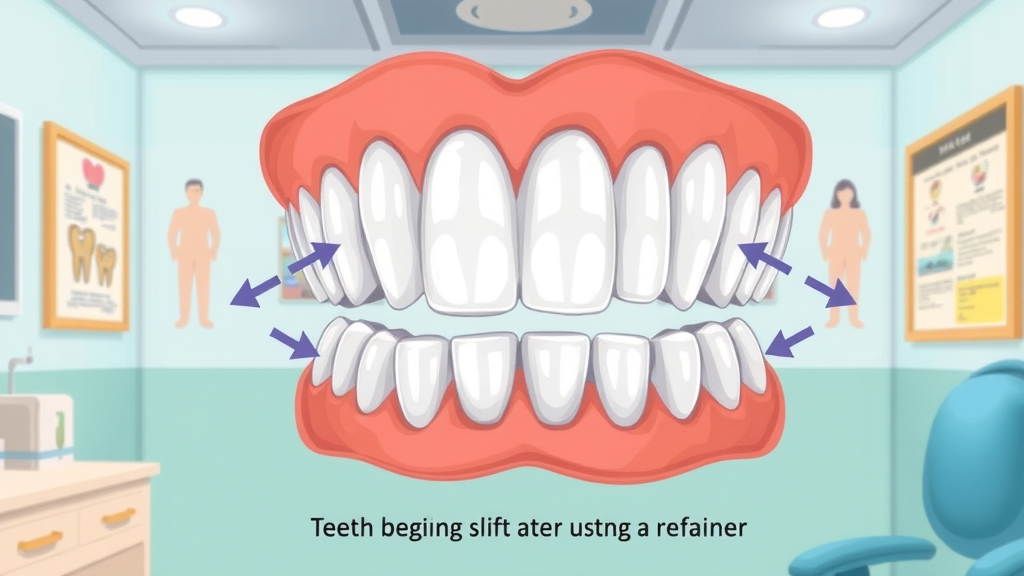
Contact Your Orthodontist After You Lose Your Retainer
- What to say when you call about a lost or damaged retainer
- Steps your orthodontist may take to help
Once you’ve searched thoroughly and are sure your retainer is lost or damaged, it’s time to contact your orthodontist. Be honest and specific. When you call, explain how and when you lost your retainer (or how it was damaged), and mention if you’ve tried wearing any backup retainers you have. This helps your orthodontist assess if your treatment is at risk and arrange for a replacement quickly.
Many orthodontic offices prioritize patients who have lost retainers, because acting fast can save your smile. Expect your orthodontist to schedule a visit so they can check your teeth for movement. Sometimes, your orthodontist may recommend a new mold or impression for a replacement retainer. In some cases, they may even have a backup model on file and can order a new one without seeing you in person. Either way, scheduling an appointment as soon as possible is crucial to prevent your teeth from shifting and to protect the progress of your orthodontic treatment.
What Happens if You Delay Contacting Your Orthodontist?
- Risks of delayed action: shifting teeth and extended orthodontic treatment
- Emergency protocols for lost retainers
If you put off contacting your orthodontist, you could face some serious consequences. When left unchecked, teeth may start to move—undoing your orthodontic journey and potentially requiring additional treatment to correct the shifting. The longer you wait, the more likely your bite and smile will regress, which means you could spend even more time and money fixing something that could have been avoided.
Most orthodontists have emergency protocols for lost retainers. If your teeth have already started to shift, they may fit you with a temporary solution or rush a replacement retainer. Delayed action can turn a simple replacement visit into something much more complicated, possibly even requiring short-term braces or aligners to restore your smile. Don’t risk it: quick action now means less hassle, less expense, and more assurance that your beautiful smile will last.
Temporary Solutions: Wearing Your Retainer (Or Not) If the Retainer is Lost
- Short-term fixes you can try
- Safe alternatives while awaiting a replacement
While you wait for a replacement retainer, it’s important to minimize damage and teeth movement. If you have an old retainer and it still fits, wear it! Even though it may not be a perfect fit, it’s usually better than nothing. Check it carefully for cracks before use. Clean it thoroughly before putting it back in your mouth.
If you don’t have a backup or cannot find any old retainers, avoid makeshift solutions like bending plastic or using home molds. These can do more harm than good, possibly damaging your gums or teeth. Instead, keep practicing good oral hygiene and minimize any pressure or force applied to your teeth by avoiding chewing on pens, ice, or hard foods. Stay in close contact with your orthodontist during this period—they may recommend a rush order for your replacement or offer a safe stopgap solution tailored to your needs.
| Time Without Retainer | Risk of Teeth Movement | Recommended Action |
|---|---|---|
| 1-2 Days | Minimal—but act immediately | Search for retainer and call orthodontist |
| 3-7 Days | Moderate—teeth may shift slightly | Arrange for a replacement ASAP |
| 1-2 Weeks | High risk—noticeable shifting possible | Emergency appointment recommended |
| 2+ Weeks | Very high—orthodontic relapse likely | Consult orthodontist and discuss further treatment options |
Costs, Insurance, and Replacement Options for a Lost Retainer
- How much does it cost to replace a lost or damaged retainer?
- Does insurance typically cover lost retainer replacement?
- Payment options and what to expect at your orthodontic visit
One of the biggest concerns after losing or damaging your retainer is the expense. Replacement costs typically range from $150 to $500 per retainer depending on the type (clear, wire, or custom). This may feel steep, but consider it an investment in maintaining all your hard dental work! Some insurance plans cover part of the replacement cost for removable retainers, but many do not, so check with your provider for details. Payment plans are often available, so don’t delay your appointment due to cost concerns—your orthodontist’s office can discuss options that suit your budget.
At your orthodontic visit, prepare for a quick exam to assess if your teeth have shifted. If impressions or scans are needed, the process is fast and non-invasive. In many cases, your orthodontist can use a backup digital file of your previous retainer to expedite your replacement. While paying for a new retainer might sting, acting fast will save you money in the long run by preventing the need for more orthodontic treatment.
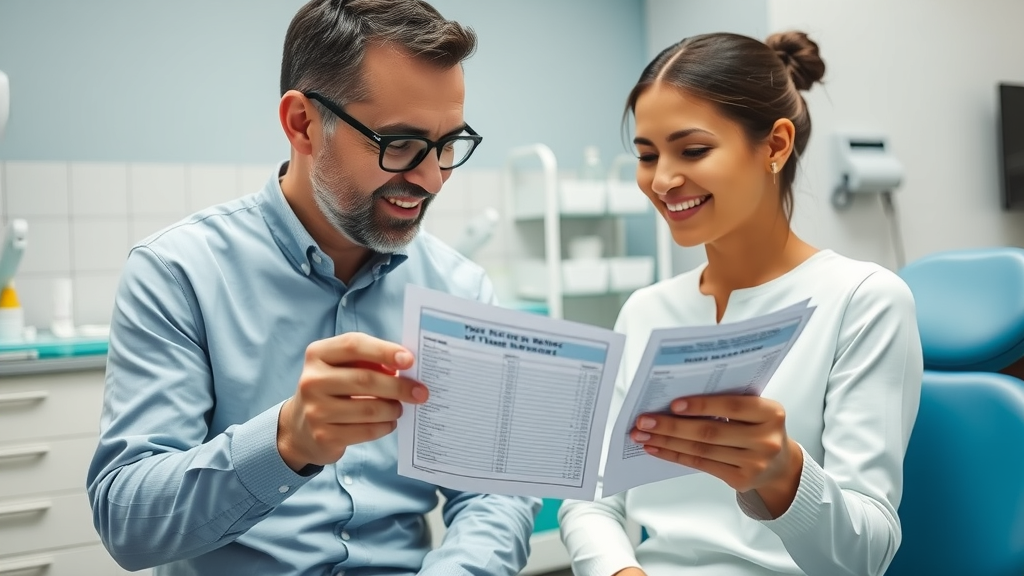
Can You Prevent Losing Your Retainer? Tips for Wear and Care
- Always use your retainer case: Make it a habit to put your retainer directly in a case when you’re not wearing it. Avoid wrapping it in napkins, putting it in pockets, or leaving it in random places.
- Keep a backup retainer if possible: Some orthodontists offer two sets. Use one for daily wear and keep the other in a safe spot as a spare.
- Clean your retainer regularly: Clean retainers last longer and are less likely to become brittle and break.
- Store your retainer in a consistent place: Whether it’s your nightstand, bathroom drawer, or backpack pocket, always store your case in the same spot.
- Check before throwing things away: Many retainers are accidentally tossed out after being wrapped in paper towels or napkins.
By following these tips, you’ll avoid losing your retainer and keep your beautiful smile intact. Remember, prevention is easier (and cheaper) than replacement!
"Wearing your retainer as directed is the single most important thing you can do to maintain a beautiful, straight smile after orthodontic treatment." — Dr. Evans, Orthodontic Specialist
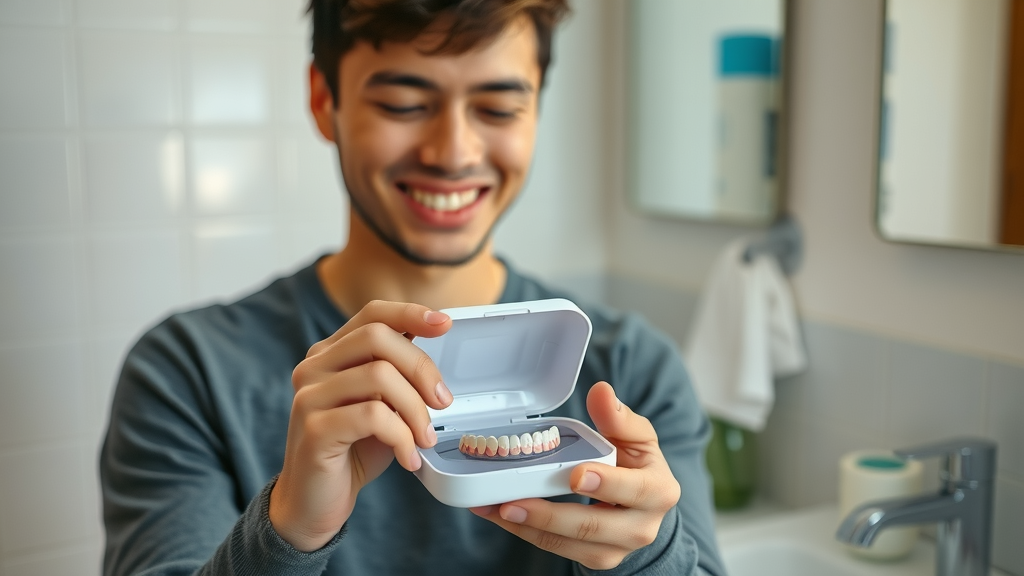
People Also Ask: What to Do If I Lost My Retainer?
- Answer: If you've lost your retainer, stay calm, thoroughly check places where it might be, and contact your orthodontist immediately. Avoid long gaps without wearing your retainer.
People Also Ask: How Long Can I Go Without My Retainer?
- Answer: Teeth can start to shift in as little as a few days to a week without a retainer. Immediate replacement is recommended to avoid reversing your orthodontic treatment.
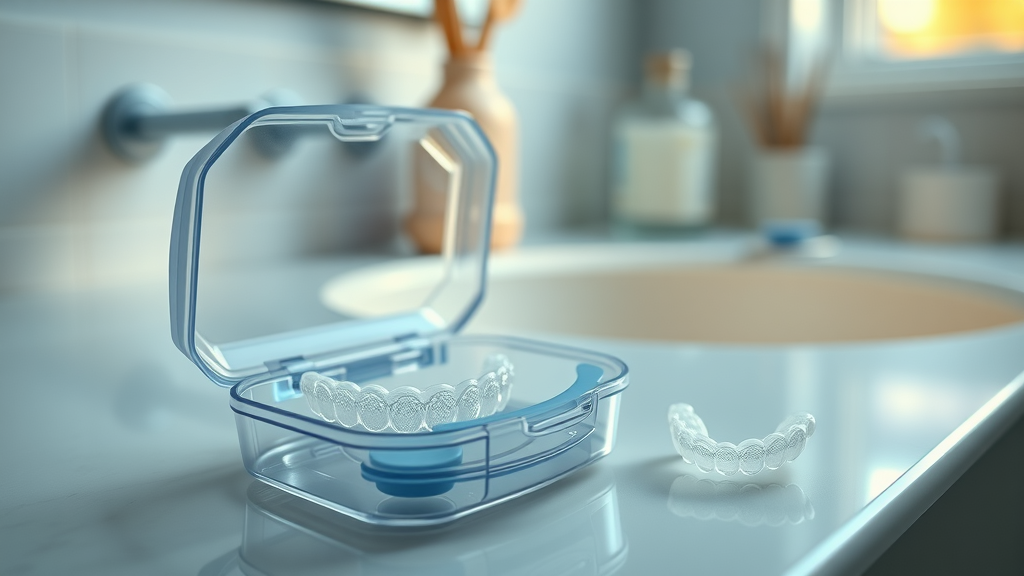
People Also Ask: Is Losing a Retainer a Dental Emergency?
- Answer: While not always an immediate emergency, losing your retainer is urgent. The faster you act, the less chance your teeth will shift. Call your orthodontist promptly.
People Also Ask: Do I Have to Pay if I Lose My Retainer?
- Answer: Most orthodontic practices do charge for retainer replacements. Costs vary and insurance may partially cover the expense, so review your plan details.
FAQs: Everything Else About What Should I Do If I Lose My Retainer?
-
Can I use my old retainer if I find it?
If your old retainer still fits and feels comfortable, you can use it as a temporary solution. If it feels tight or painful, don’t force it—call your orthodontist for guidance. -
Should I try to fix a damaged retainer myself?
Never attempt to fix a damaged retainer at home. DIY repairs can make the problem worse or cause injury. Contact your orthodontist for a professional opinion and replacement. -
What if my retainer keeps breaking or getting lost?
Speak to your orthodontist—they may recommend a different type of retainer, like a fixed one, or suggest strategies for safer storage and care. -
How quickly do teeth start moving without a retainer?
Teeth can start to move after just a few days without a retainer, especially in the first year post-treatment, so act fast to prevent shifting.
Key Takeaways: What Should I Do If I Lose My Retainer?
- Act immediately if you lose your retainer
- Contact your orthodontist as soon as possible
- Temporary solutions exist, but a new retainer should be acquired quickly
- Proper care prevents loss or damage
Conclusion: Protecting Your Beautiful Smile After a Lost or Damaged Retainer
- Losing your retainer isn’t the end of your orthodontic journey, but what you do next matters. Take action, stay informed, and keep your smile healthy.
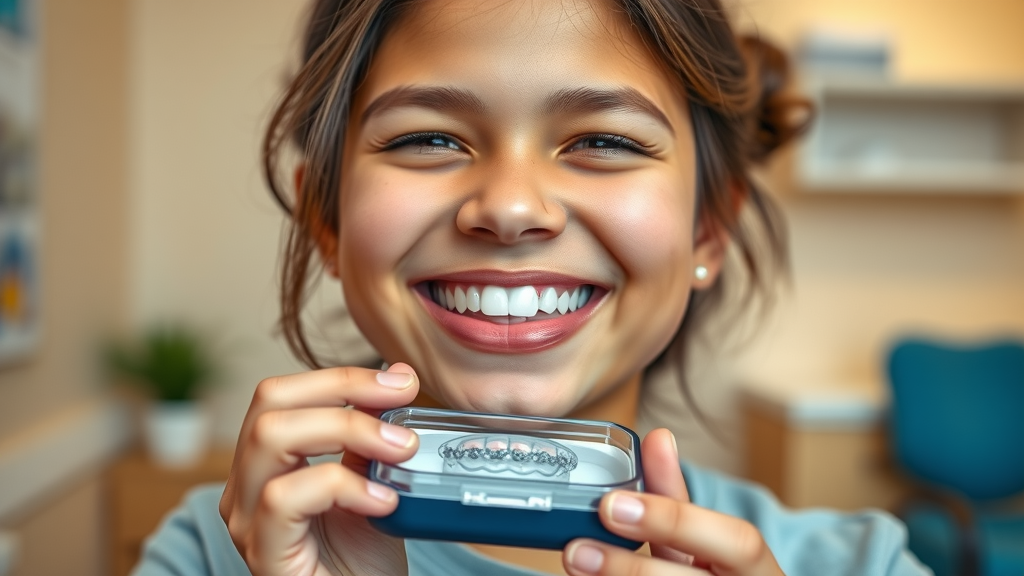
Your Next Step: Stay Informed and Protect Your Smile
- Your smile is worth it — and staying informed is the first step. Join hundreds of locals already following Grand Strand Smile Spotlight for updates, advice, and trusted care insights.
"Don’t let a lost retainer undo months or years of progress. Act fast, consult your orthodontist, and stay proactive."
Video explaining quick steps to take if you lose your retainer, including when to call your orthodontist, how to safely store old retainers, and practical tips for prevention.
Learn how losing your retainer can affect your orthodontic results and see tips from dental experts on keeping teeth aligned after braces or Invisalign.
Losing your retainer can be concerning, but taking prompt action is essential to maintain your orthodontic results. The article “I Lost My Retainer: What to Do and How to Stop Your Teeth From Shifting” provides comprehensive guidance on immediate steps to take, including contacting your orthodontist and considering temporary solutions to prevent teeth from shifting. (dentaly.org) Additionally, “What Should I Do If I Lose Or Damage My Retainers?” offers practical advice on handling lost or damaged retainers, emphasizing the importance of timely replacement and preventive care to safeguard your smile. (mtsmilesortho.com) If you’re serious about maintaining your orthodontic results, these resources will provide you with the necessary steps and tips to address a lost retainer effectively.
 Add Row
Add Row  Add
Add 




Write A Comment